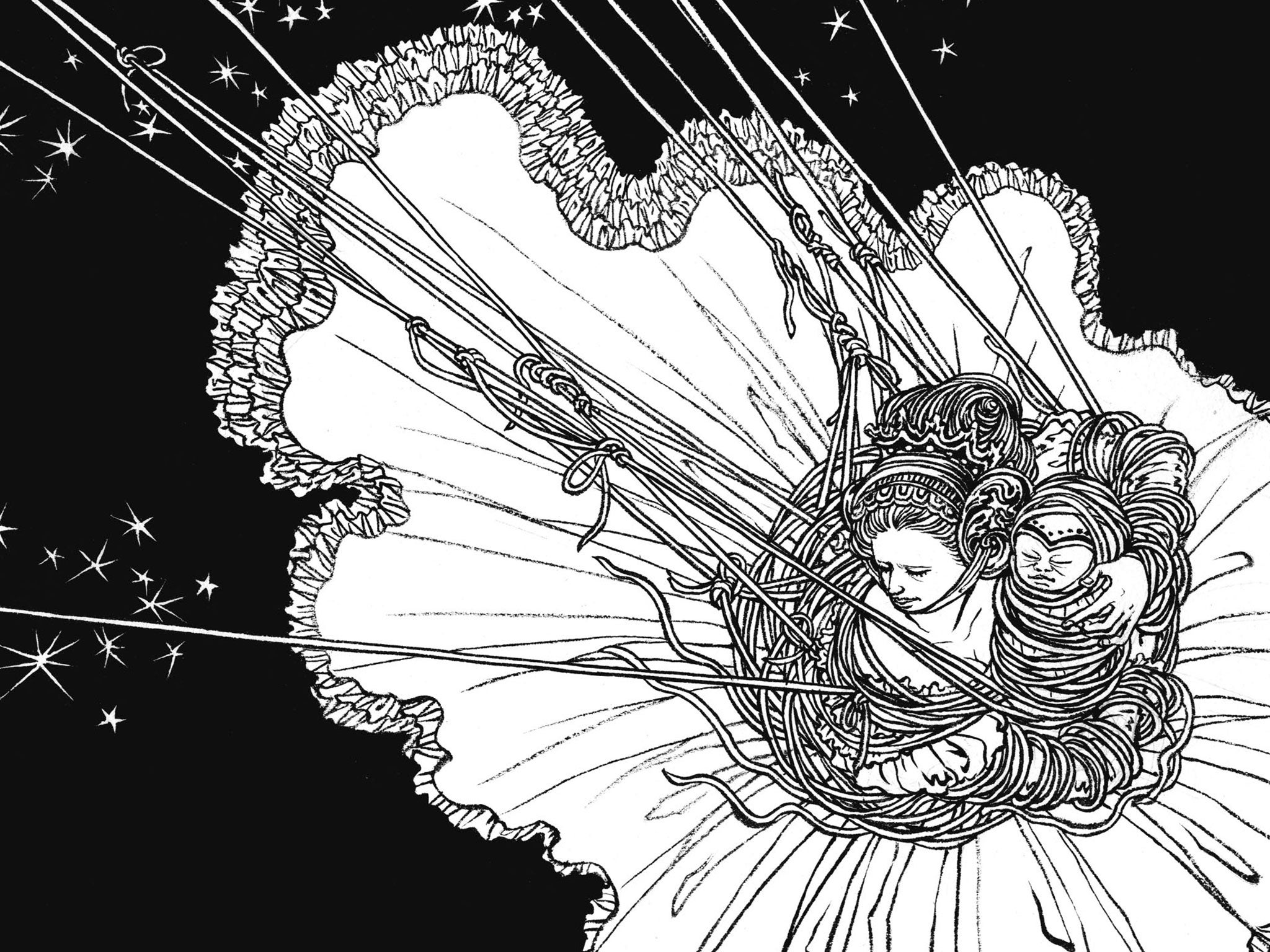Monsters and heroines are Grimm but great reading for adults; A Wild Swan and Other Tales by Michael Cunningham: Week in Books
Michael Cunningham's dark, alluring fairy tales, rebooted for grown-ups

Fairy tales for grown-ups are peculiar, mutant things, with a nostalgic, almost-still-magical something that lingers plaintively around them. And the strange satisfaction we feel in hearing them again, even when we know the beginnings, middles, and happy endings; though more so when the beginnings are familiar, the middles are filled with new forms of darkness, and the endings – now that we know the world as we do – are unhappy.
What reassurance it is to know that it is not only our romances, marriages, families, that have less-than-perfect endings. Such inversions come thick and fast in A Wild Swan and Other Tales (Fourth Estate, £14.99; illustrations by Yuko Shimizu), Michael Cunningham’s fairy stories for grown-ups, in which he rewrites Grimm’s tales, including “The Six Swans”, “Hansel and Gretel”, “Rumpelstiltskin”, and “Snow White”. While there was darkness in the original tales – blood, butchery and much else – Cunningham’s collection brings emotional light and shade where there was none.
The evil, cannibalistic witch of “Hansel and Gretel” is an admirably eccentric, albeit, lonely old lady, a victim of marauding children who gobble up her house of candy, in “Crazy Old Lady”; Rumplestiltskin is not a devilish imp but another deeply lonely outsider looking for companionship, if not love, in “Little Man”.
Cunningham’s idea of a happy ending is complicated too; even when it is there, it is of an adult kind, where disappointment, resentment and compromise are recognised as inevitable facets of enduring love. It’s a warts-and-all happy ending. So Rapunzel ends up with her prince in “Her Hair” but both know they are taking part in romantic self-deception, each cleaving to notions of the other which no longer matches reality; the king and queen of “Ever/After” live and love and grow old and die together, but their marriage is rocked by infidelities and reconciliations and the messy business of the children and grandchildren; ebbing sexual fireworks, and growing mutual respect.
Marriage, in fact, is never the point at which these stories end, and that’s where the complications begin, and why we do not leave the story with the same, giddy “happy ever after” of fairy-tale land. Once the bipolar high of youthful romance has subsided, the flaws of spouses, be they frog-princes or princesses, reveal themselves and, over enough decades, calcify in the grooves of a relationship.
Cunningham is no stranger to grown-up retellings (his last novel, The Snow Queen, took inspiration from Hans Christian Andersen’s story) and some of these fairy-tale marriages are not unlike that in the novel before that, By Nightfall – a reboot of Death in Venice – in which boredom and familiarity in a marriage is mistaken for a falling-out-of-love, when, really, it is just boredom and familiarity sitting alongside love.
The light, demotic, comical lilt to the stories is deceptive. This is not a tongue-in-cheek collection, even if there are tongue-in-cheek elements – the sexually under-confident brother in “A Wild Swan” (based on the bewitched brothers of “The Six Swans”, who are turned into swans then back into humans, one imperfectly, with a swan’s wing remaining instead of an arm) drowning his sorrows on a bar-stool, wondering how he will ever be attractive enough to the opposite sex to find the kind of suitable wife his brothers have found, and practising, internally, his chat-up lines (“yeah, right, sweetheart, it’s a wing, I’m part angel, but trust me, the rest is pure devil”) before staggering home alone. His crisis is representative perhaps of the modern crisis in masculinity – the cocksure Adonis of the fairy tale substituted for a sensitive, self-questioning sort.
The comedy in these stories works brilliantly, but it does not uncut the tragedy of its lonely and quietly tormented outsiders. Intentions are explored by Cunningham so that Grimm’s witches and dwarves and giants living on top of beanstalks become human, and relevant to our times. This collection reminds us of the uncanny ability of the fairy tale to allow its story and characters to bend and stretch to the time in which it is being reconceived, to be both archaic and topical.
This week, plans in Grenoble, France, to install vending machines that sell short stories to commuters, were announced. I hope it happens here, too, so we no longer need to stare glassily into space on our journeys. These tales, short, contemporary, disturbing, and alluring, would make perfect vending-machine fodder: a transporting and enthralling read all the way home.
Subscribe to Independent Premium to bookmark this article
Want to bookmark your favourite articles and stories to read or reference later? Start your Independent Premium subscription today.

Join our commenting forum
Join thought-provoking conversations, follow other Independent readers and see their replies